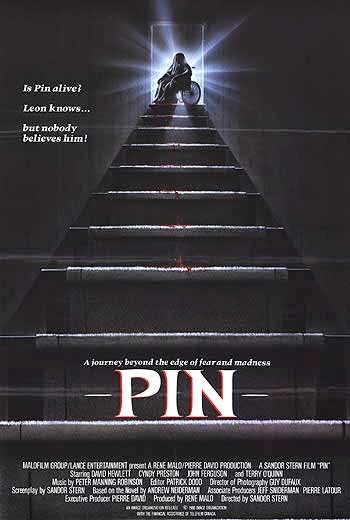
If you have ever wanted to see a film that one could say is a cross between a Steven Spielberg film and a Quentin Tarantino film, I have one for you. The 1986 Australian film, “Fortress,” fits this description pretty darn well. “Fortress” stars Rachel Ward as schoolteacher, Sally Jones, who teaches a class of about twelve students in a small village in Australia. I do not recall any mention of what part of Australia the film is set, however, it is not terribly relevant to the plot—just as long as it’s not supposed to take place in the outback, which it does not.
At the beginning of a normal school day, a group of four thugs, wearing masks, kidnap the students and the teacher at gunpoint, forcing them into the back of a van. The teacher and her students begin a frightening journey through the area around their village which leads them to a hole in a wooded area which we learn had been prepared prior to their arrival by the four thugs. The hole is shallow enough for the students and teacher to slide down into. We discover that it is an underground cavern (do they make above ground caverns?). I hesitate, at this point, to go into describing the events that make up the remainder of the film, as the film contains very specific acts. In other words, Act I features the students and teacher being kidnapped and the events surrounding that. Act II is comprised of the arrival at the hole in the wooded area and what the students and teacher discover and how they react to the situation in which they find themselves. The remainder of the film offers quite a bit of excitement and opportunities to root for this group of young people and their teacher.
One interesting aspect of “Fortress” is the performance of Rachel Ward. She is perfect as the teacher who leads and corrals the students, as even in such a frightening position, the students still, at times, act like children. One could argue that presented with circumstances involving being kidnapped at gunpoint and witnessing some unpleasant things, children may not continue to act like children. Not being Dr. Benjamin Spock, the famous child psychologist, or a father, I cannot comment intelligently on how children would act in any given situation. I can imagine, however, that there might be some debate regarding the conduct of the children in the film, who range from ages 5-14. I did not have any issue regarding the conduct of the children. Rather, their conduct appeared to be a fairly realistic view of how children may act in the situations they are placed into during the course of the film.
Before starring in “Fortress,” Rachel Ward was already well-known for her performances in “Sharky’s Machine” (“Nobody Leans on Sharky’s Machine”), the tv mini-series, “The Thorn Birds,” and the 1984 Jeff Bridges film, “Against All Odds,” which features the great Phil Collins song, “Take a Look at Me Now.” It was great to see an actress who was already well-known appear in a relatively low-budget film in which she is the only well-known performer in the film. Her interaction with the young actors in the film is great and one may surmise (I’m gonna go ahead and surmise) that Rachel Ward perhaps created positive chemistry with her co-stars. I got the sense throughout the film that teacher and students were working as a collective group to attempt to find a way out of their horrible situation.
There are not many scenes of violence or gore in “Fortress.” This works to the film’s benefit as the film is, without a doubt, more about the characters and the gravity of their situation than about a display of violence. It would, though, surely receive an “R” rating, I believe, if reviewed by the MPAA at the time, however, it was made for Australian television, and, therefore, did not receive a rating, at least not in the U.S. “Fortress” feels, at times, like a Spielberg directed or produced film, like an adventure film for kids in which the kids embark on some kind of adventure. There is no doubt, however, after the first few minutes of the film, that this will not be so, however, the Spielberg-esque feel remains at times, despite the actions in the film.
At the same time, there are many aspects of the film that may remind one of a Tarantino film---of course, “Fortress” being made in 1986, Tarantino had yet to emerge in the filmmaking scene—nonetheless, I use Tarantino as a barometer for films with more of an edge than a normal, “safe-feeling” movie. Trust me, you will see what I mean if you either purchase “Fortress” or rent it from any of the fine online movie rental websites like Netflix. My barometer points towards an extremely positive reaction to “Fortress.” It is recommended highly and is a rewarding way to spend 88 minutes. Do not build a wall between you and this film. There is no need to defend against seeing “Fortress.”



















































































No comments:
Post a Comment